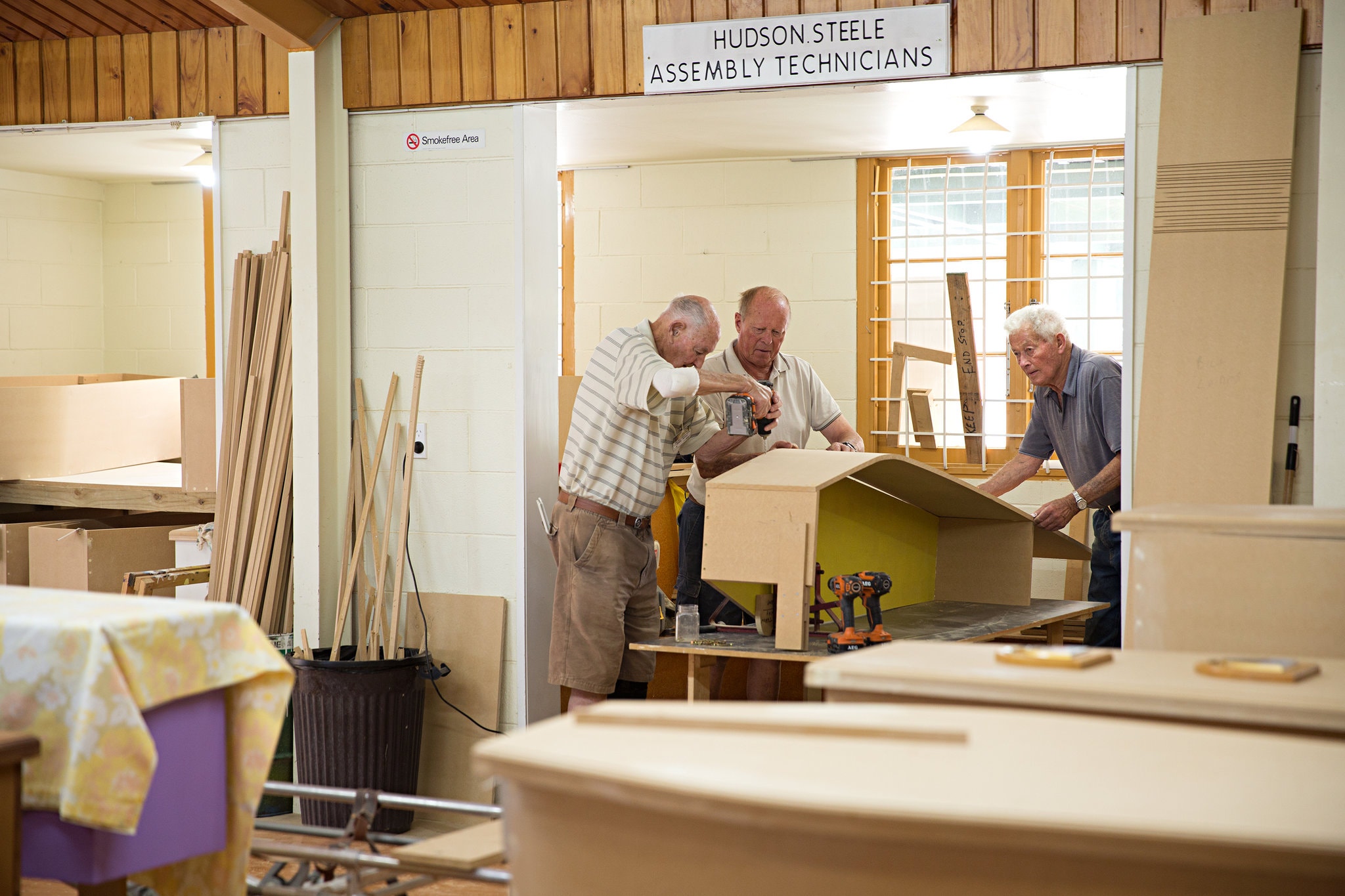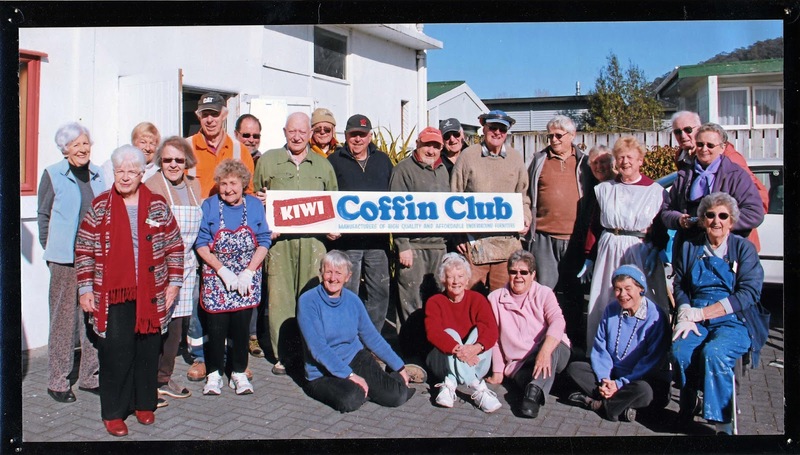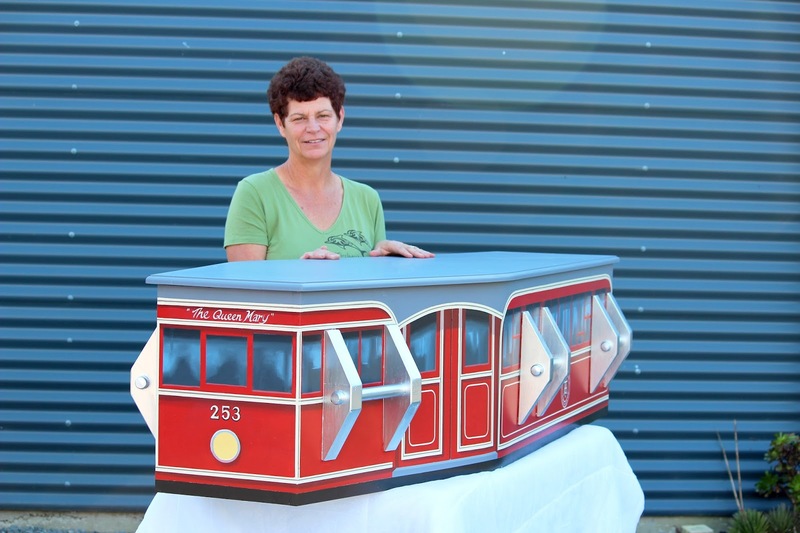Coffin Clubs: “Makers of Fine, Affordable, Underground Furniture”
Oh, those Kiwis. First, they gave us explorer Sir Edmund Hillary, country singer Keith Urban and actor Russel Crowe. Now, they’ve started a trend that’s not only captured the interest of hundreds of aging New Zealanders, but also snagged a prestigious National Geographic short film award.
They’re called “coffin clubs,” and they’re sweeping the small island country. As with other popular clubs, coffin club members get together once a week for discussion and activities. Only instead of discussing Oprah’s latest book selection or sharing a bottle of wine, these ladies and gentlemen talk about death and decoupage coffins.
 The first coffin club was founded in Rotorua, New Zealand by Katie Williams, now 78 and a palliative care nurse. She came up with the idea at a meeting of an organization encouraging lifelong learning.
The first coffin club was founded in Rotorua, New Zealand by Katie Williams, now 78 and a palliative care nurse. She came up with the idea at a meeting of an organization encouraging lifelong learning.
“For a reason that I have absolutely no idea about in retrospect, I got up and said, I’d like to build my own coffin,’” Williams told National Geographic in 2017. Others agreed, and the Kiwi Coffin Club of Rotorua was born. Today there are similar clubs in at least three other New Zealand cities as well as mainland Australia and Ireland.
Paying their dues
In exchange for dues ranging from $7 a year to $10 for a lifetime membership, coffin club members meet once a week to build and decorate coffins — either for themselves or for others. Some clubs, like the one in Waitakere, devote their time and skills to crafting coffins for stillborn babies and infants.
Particleboard coffin kits with handles and plastic lining start at $180, and club members assist one another with assembly. After that, though, members completely personalize each finished product. Their unique creations include such diverse themes as Elvis, hydrangeas, dancing skeletons, trams, and racecars.
Coffin construction and embellishment are just part of the purpose of the club. As Williams told National Geographic, members come together each week to eat meals together, enjoy afternoon tea, and “celebrate death.”
“Celebrating death is just as important as celebrating life,” Williams said.





